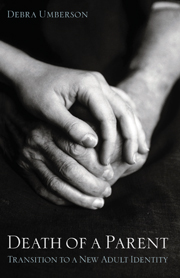Book contents
6 - THE NEXT GENERATION
Published online by Cambridge University Press: 30 July 2009
Summary
My kids were taking care of me.… I didn't realize they had such good skills.… That was kind of a revelation.
HELEN, AGE FIFTY-TWOI am what survives me.
ERIK ERIKSON, IDENTITY: YOUTH AND CRISISThe death of a parent highlights the reality of our own individual mortality, especially since it is most likely to occur in middle adulthood, when our concerns about death are already on the rise. The death of a parent is about the end of one generation and the passing of a torch to the next generation. As we receive that torch, we become more focused on our own children. We consider the meaning of our relationships with our sons and daughters and what kind of personal legacy might be passed into the future through our children.
Erik Erikson was one of the first psychologists to argue that human development extends beyond childhood and even into old age. Erikson saw middle adulthood as being loosely linked to the seventh stage of human life when the key issue for individuals is generativity. Generativity refers to “a concern for and commitment to the next generation.” Erikson argued that during this stage of life, adults must resolve the conflict between self-interest and contributing to society and the next generation.
According to Erikson, having and rearing children can foster generativity. It is about nurturance and responsible caring for others, about a preoccupation with something outside the self.
- Type
- Chapter
- Information
- Death of a ParentTransition to a New Adult Identity, pp. 131 - 150Publisher: Cambridge University PressPrint publication year: 2003



